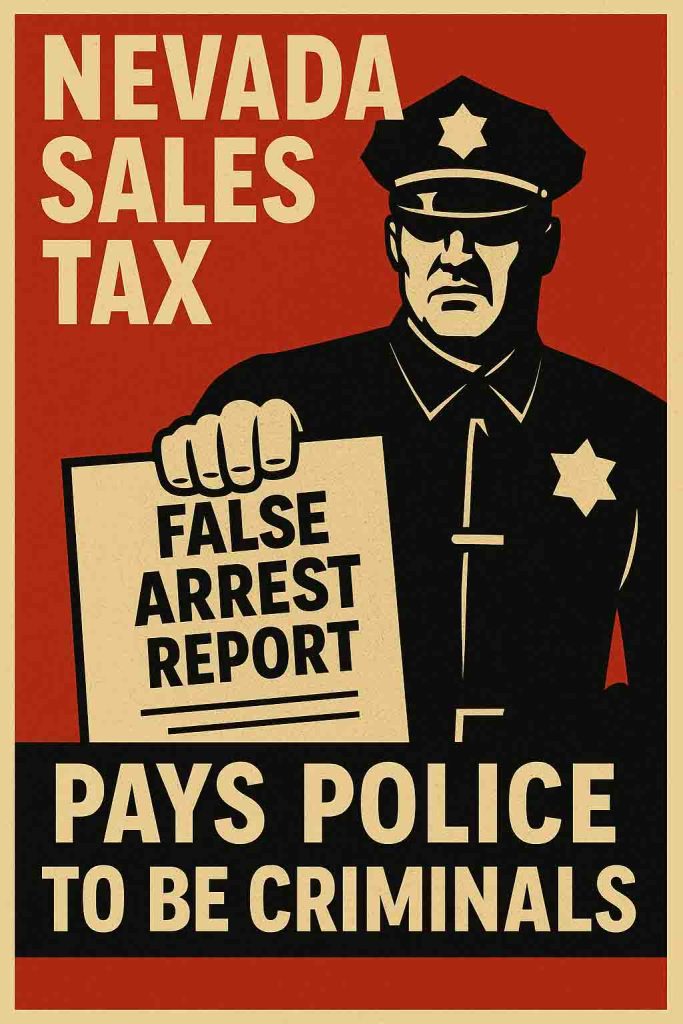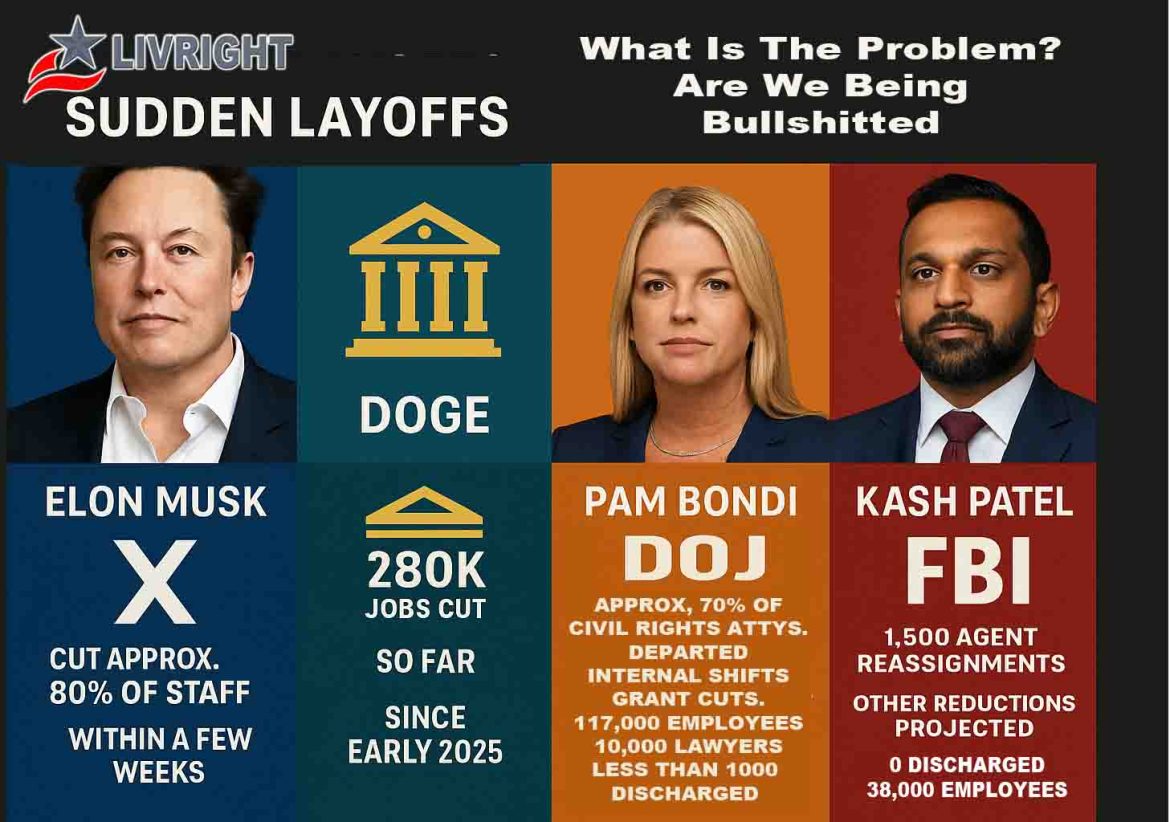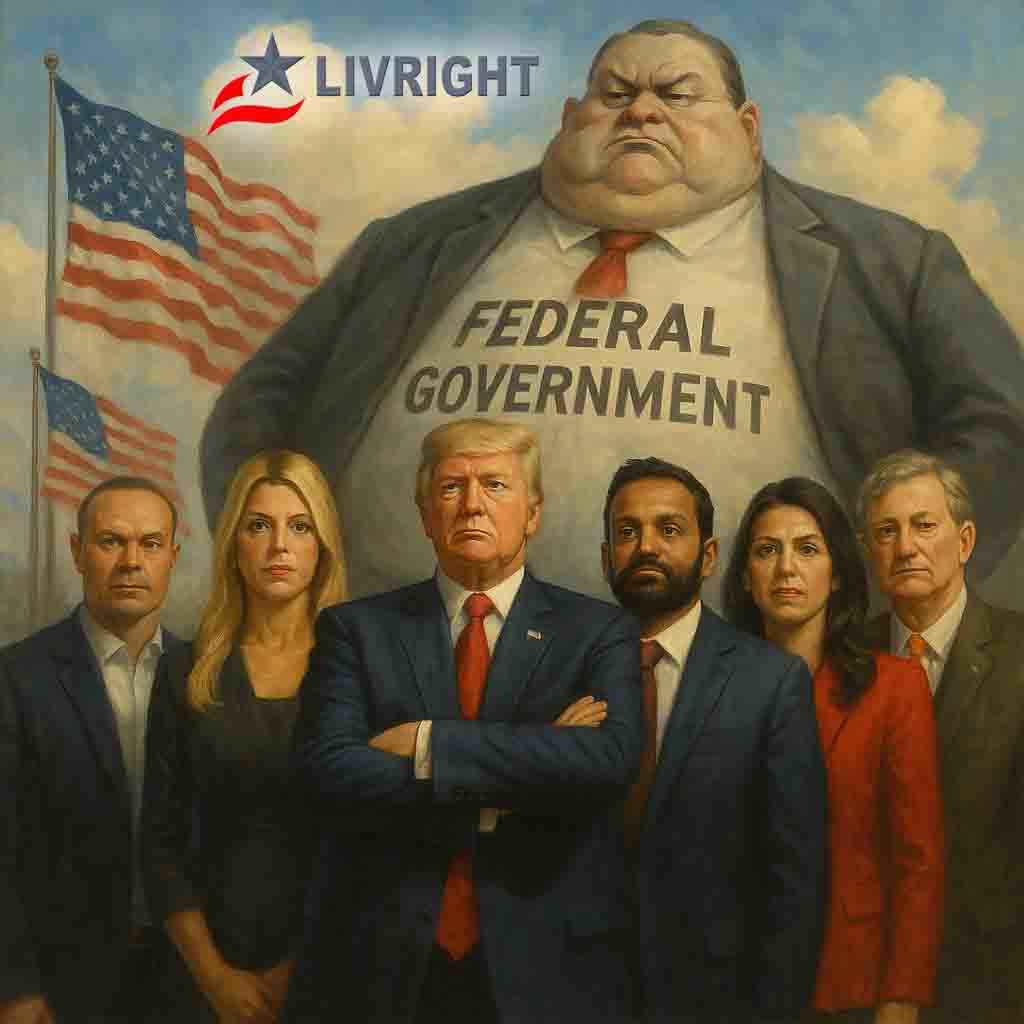YES - Lets Compare DOGE VS DOJ AND FBI
ELON MUSK vs DOJ & FBI
The Department of Government Efficiency (DOGE), established under President Donald Trump and led by Elon Musk, has initiated substantial reductions in the federal workforce. As of March 2025, DOGE’s actions have been linked to over 280,000 announced job cuts across 27 federal agencies, according to data from Challenger, Gray & Christmas .House Budget Committee DemocratsPYMNTS.com+2Challenger, Gray & Christmas, Inc.+2Barron’s+2
These reductions encompass both direct federal employees and contractors, with significant impacts on departments such as Veterans Affairs, Education, and the Internal Revenue Service. For instance, the Department of Veterans Affairs has outlined plans to eliminate approximately 80,000 positions .House Budget Committee Democrats
DOGE Is Saving America
In addition to these cuts, DOGE has implemented a hiring freeze and introduced a policy allowing agencies to hire only one employee for every four departures, effectively reducing staffing levels over time .The White House
While DOGE reports savings of $160 billion from these measures, analyses suggest that the associated costs—including rehiring expenses, legal challenges, and decreased productivity—may offset these savings, potentially resulting in a net cost of $135 billion to taxpayers .CBS News+1Wikipedia+1
Overall, DOGE’s initiatives have led to significant workforce reductions, with projections indicating that federal job losses could reach 200,000 by the end of the year .
Why are States Refusing To Cut Back Bloated Services?
Many states are refusing to lay off government employees—even as the federal government under President Donald Trump and DOGE pursues massive workforce reductions. One major reason is political self-preservation. State politicians often rely on public employee unions and large government workforces for electoral support, knowing that layoffs could jeopardize re-election chances. Additionally, state budgets are heavily supplemented by federal funding, which creates little pressure to cut back—even when mismanagement or inefficiency is obvious.
Instead of following Trump’s lead to downsize bloated bureaucracies, many governors and legislators are choosing to protect government jobs over reducing costs or improving services. These state officials resist reform because government workers are a powerful voting bloc, often organized, vocal, and financially supportive of status-quo leadership. By avoiding layoffs, state leaders preserve their political alliances—even if it comes at the cost of economic responsibility, private-sector competitiveness, and long-term fiscal health for the people they claim to serve.
Cutting Federal Fund to States
Yes—Donald Trump may be forced to cut federal funding to the states in order to compel real reform. Despite calls for efficiency, many states continue to operate with bloated budgets, refusing to reduce excessive government payrolls or eliminate waste. These states rely heavily on federal money while resisting the very reforms Trump is promoting through DOGE. By tightening or withholding funds, Trump can pressure states to streamline operations, cut unnecessary jobs, and rein in irresponsible spending. Without such financial leverage, state leaders will likely continue protecting inflated agencies that drain resources and weaken national progress toward fiscal accountability.
Stop The Rise of The4thReich!
The Rise Of The4Reich
“The State of Nevada’s police, legal, and political infrastructure is government bloated problem and has evolved into a progressive machine—functioning not as a system of justice, but as a modern blueprint for authoritarian control. In its current form, it resembles the foundation of a Fourth Reich, where due process is sacrificed for ideological conformity, and power is concentrated in the hands of unaccountable public servants. What was once a constitutional republic now teeters toward a bureaucratic regime fueled by propaganda, protected by immunity, and enforced through fear. If this trajectory is not stopped, the people of Nevada—and ultimately, America—will no longer recognize the freedoms they were promised.”
Do Public Servants Extort From The Private Sector To Justify Income?

YES – To make this claim State of Nevada vs Russell Martin. The Sheriff Gabriel Villanueva, LVMPD created and embleshed a false arrest report that after 4 years of criminal state prosecution defendant Russ Martin was released of the crime due to Robert Moos refusing to serve the State Prosecutor. Search Russell Martin.
Yes, in certain cases, the public sector can exert disproportionate power over the private sector, creating imbalances in justice, opportunity, and accountability. However, calling it “extortion” legally requires proving intentional coercion or threats for unlawful gain, which is rare to prove and not usually how the system is formally recognized. But they do it all the time. As an individual you cannot fight. They know it. LivRight Statement!
🔍 Let’s break it down: Is Government Bloated?
1. Government Public Sector Power Over the Private Sector
Regulatory Authority: Public officials can impose fines, shut down businesses, or deny permits—sometimes arbitrarily.
Taxation: The state extracts money from private citizens and businesses to fund itself, including high salaries and pensions.
Licensing and Fees: Many industries are controlled by public agencies that can grant or deny your right to work, often favoring insiders.
2. Imbalance of Justice
Qualified Immunity: Public officials are often shielded from lawsuits, even when violating constitutional rights.
One-Sided Enforcement: Prosecutors and judges (public servants) often protect each other while aggressively pursuing private citizens.
Corruption: In some states, including Nevada, public corruption scandals involving judges, police, and politicians show that justice is selectively applied.
3. Economic Drain
In states with a bloated public workforce, private-sector businesses carry the tax burden while facing regulations imposed by people whose salaries they fund.
Public pensions and healthcare costs can strain state budgets, requiring more taxation or debt—while private workers get fewer benefits.


